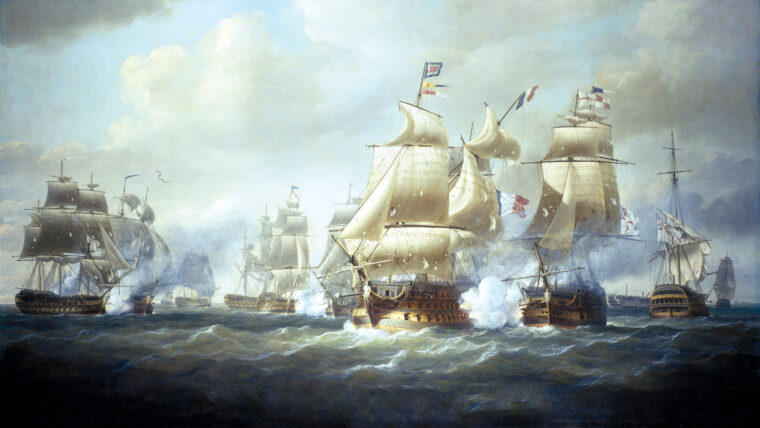
Napoleonic Wars
Broadside Off San Domingo
By David A. NorrisSmoke from hundreds of cannon muzzles fueled an ever thickening fog hovering over the Caribbean Sea south of the French-occupied colony of San Domingo on February 6, 1806. Read more
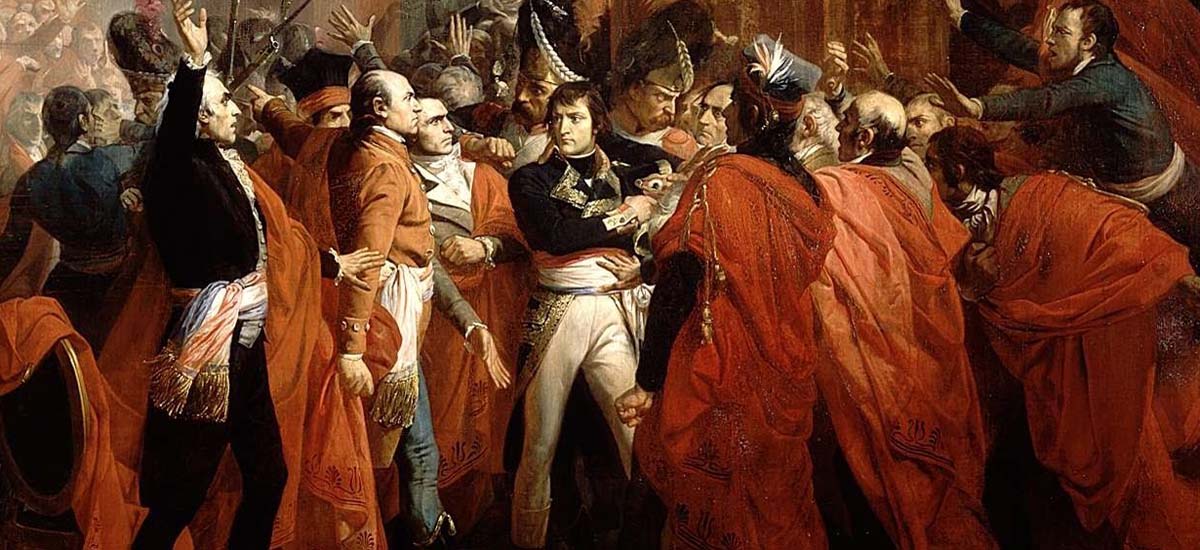
The Napoleonic Wars were a series of wars fought between the French Empire and its allies, under Emperor Napoleon I, and a series of alliances, or coalitions, among other nations of Europe, primarily Great Britain and Prussia. The Napoleonic Wars were spawned by continuing issues in the aftermath of the French Revolution and Napoleon’s desire to dominate continental Europe. The Napoleonic Wars ended with the French defeat at the Battle of Waterloo in 1815. Napoleon was exiled to the island of St. Helena, where he died in 1821.

Napoleonic Wars
Smoke from hundreds of cannon muzzles fueled an ever thickening fog hovering over the Caribbean Sea south of the French-occupied colony of San Domingo on February 6, 1806. Read more
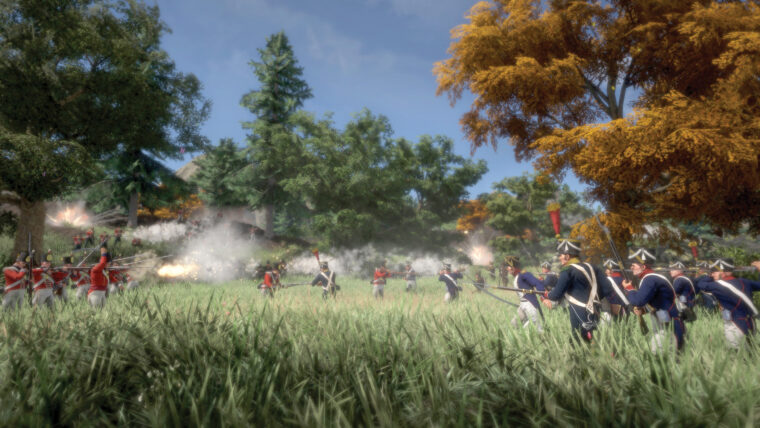
Napoleonic Wars
And now, for something completely different, Anvil Game Studios is preparing to drop us smack-dab in the middle of the Napoleonic Wars. Read more
Napoleonic Wars
On the foggy morning of November 30, 1808, Napoleon Bonaparte, Emperor of France, watched impatiently as his Grande Armée lumbered up the rocky slopes of the Sierra de Guadarrama Mountains of central Spain. Read more
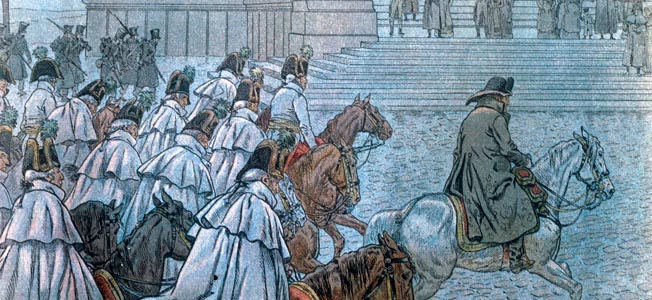
Napoleonic Wars
Napoleon had occasional health problems before 1810. He seems to have experienced seizures one or two times, episodes that resembled epilepsy, although most medical historians feel that he did not have the disease—at least not a classic version of it. Read more
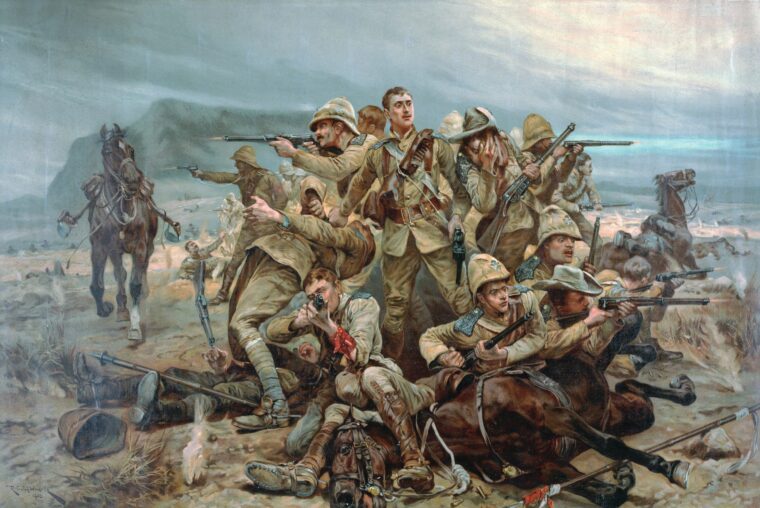
Napoleonic Wars
Modern military camouflage has gone high tech, with digicam or “digital camouflage” being the preferred pattern for soldiers in the field. Read more
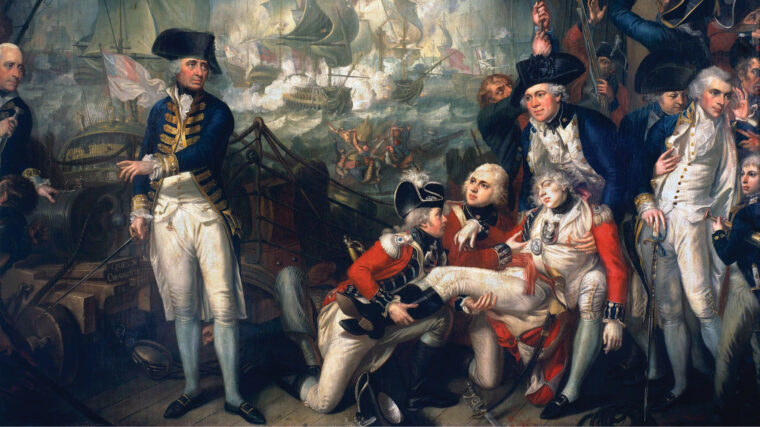
Napoleonic Wars
British Admiral Lord Richard Howe, standing on the quarterdeck of his 100-gun ship of the line Queen Charlotte, snapped his signal book shut on the morning of June 1, 1794. Read more
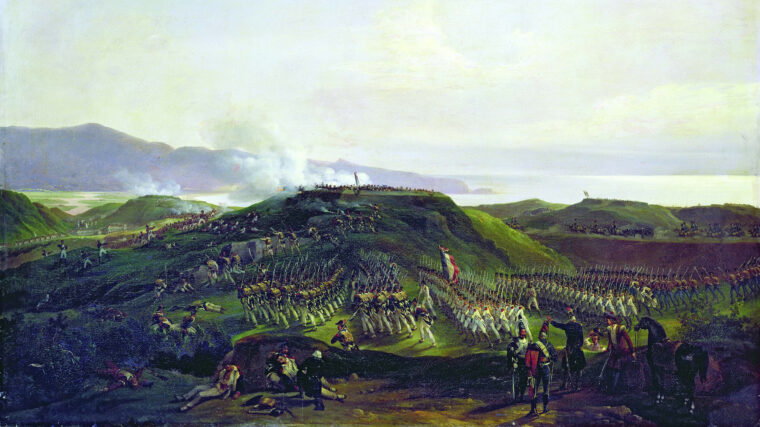
Napoleonic Wars
Wind billowed and waves crashed onto the deck of the massive 120-gun French flagship L’Ocean. From a window in his quarters, Captain General Charles Victor Emmanuel Leclerc studied the vast flotilla as it plowed through the lapping foam of the Atlantic. Read more
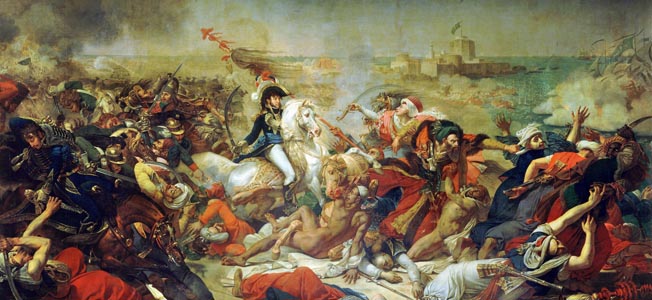
Napoleonic Wars
By the year 1798, the First Coalition was collapsing. Only Britain remained as France’s implacable foe. With the advent of relative peace, the governing body of France, the Directory, ever in need of cash, now sought new means of employment for the army and its general, Napoleon Bonaparte. Read more
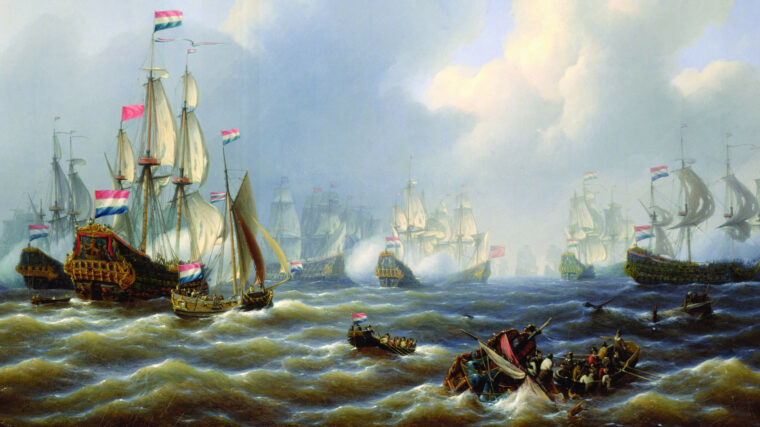
Napoleonic Wars
By the autumn of 1797, revolutionary France had been at war with the combined forces of the First Coalition for four long years. Read more
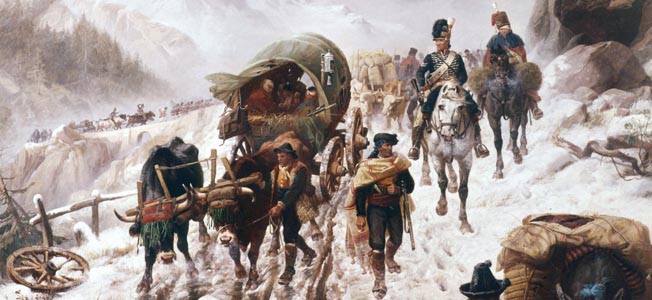
Napoleonic Wars
The 95th Regiment of Foot was a new formation in 1808, having originated with the experimental Corps of Riflemen raised in 1800. Read more
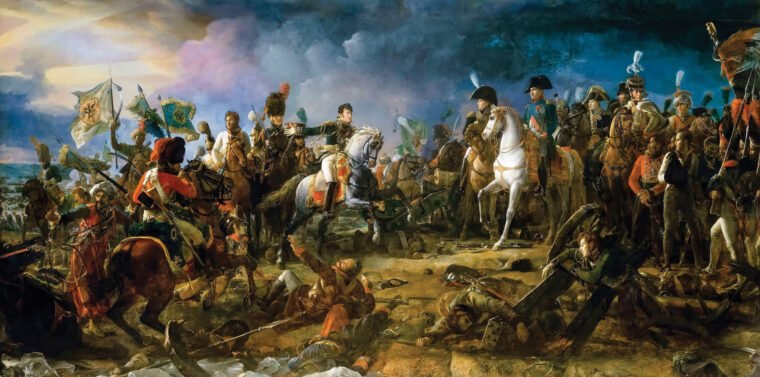
Napoleonic Wars
During the summer of 1802, Europe was at peace for the first time in 13 years. The Treaty of Amiens (March 27, 1802), had ended what would later be seen as the opening round of the Napoleonic Wars. Read more
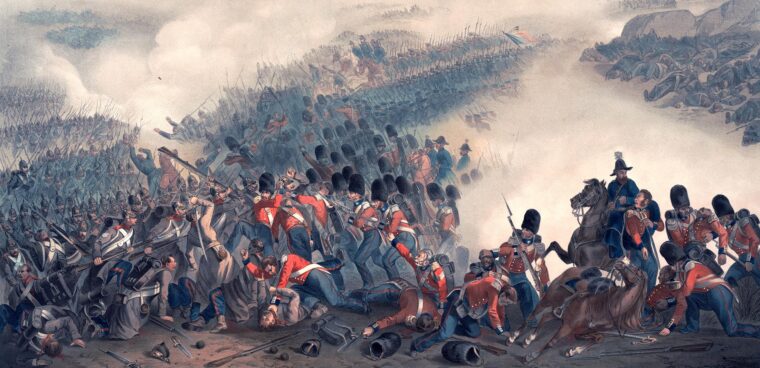
Napoleonic Wars
The force multiplier that allowed the outnumbered British to stand up to the overwhelming numbers of Russian attackers at Inkerman was the Minié bullet (not ball). Read more
Napoleonic Wars
Dashing hussars in beautifully braided dolmans and fur-lined pelisses; chasseurs in their brilliant green uniforms; the heavy cavalry of cuirassiers in their glistening breastplates, mounted on magnificent chargers; and the dragoons, wearing brass Grecian helmets with long, flowing manes of black horsehair—all magnificent in their martial and fashionable airs. Read more
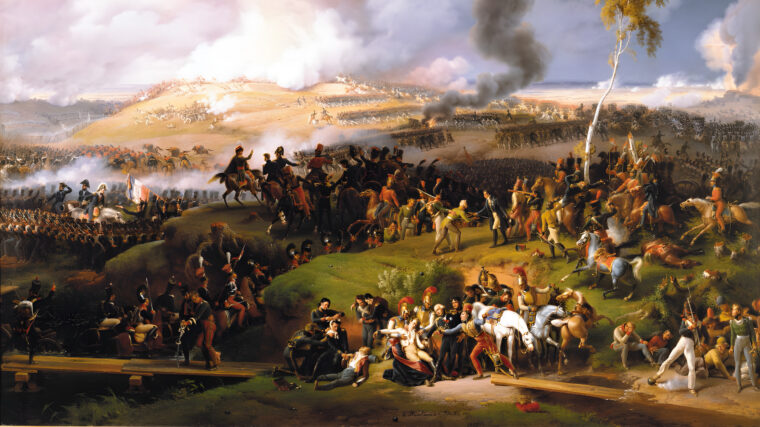
Napoleonic Wars
At 11 o’clock on the evening of June 23, 1812, the first elements of Napoleon’s mighty army marched on three pontoon bridges over the river Niemen and set foot on Russian soil; the epic invasion of Russia had begun. Read more
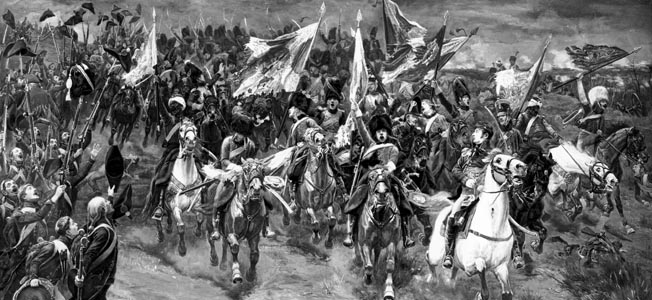
Napoleonic Wars
Had he—and not Emmanuel, the Marquis of Grouchy—been named a Marshal of France on April 1, 1815, General Count Jean Rapp might have helped the Emperor Napoleon Bonaparte win the Battle of Waterloo. Read more
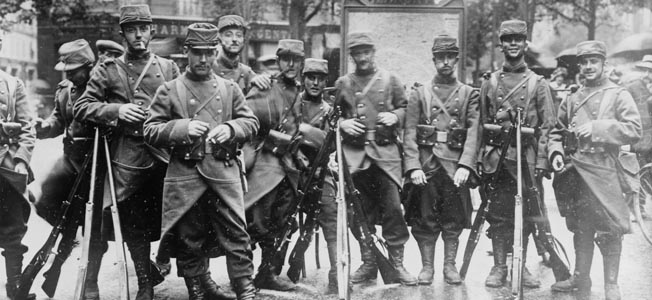
Napoleonic Wars
The French nation was stunned by the catastrophic defeat its army suffered at the hands of a Prussian-led German coalition in the Franco-Prussian War of 1870-71. Read more
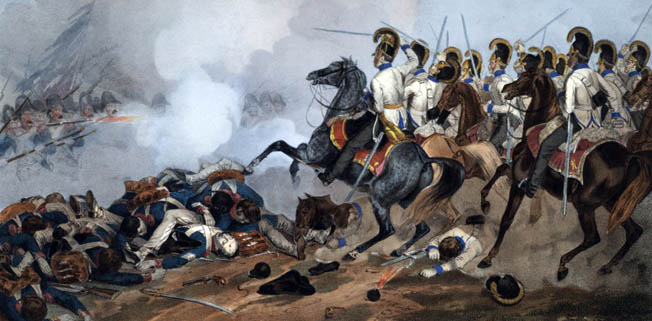
Napoleonic Wars
[Editor’s note: The following are participant accounts—mainly those of Alfred Armand Robert Saint-Chamans—of Napoleon’s 1813 campaign in Germany ending in the decisive battle of Leipzig. Read more

Napoleonic Wars
Few mortals commanded such intense devotion from their troops as did French Emperor Napoleon I, and fewer soldiers still can claim to have had a direct hand in helping to save the life of their commander. Read more
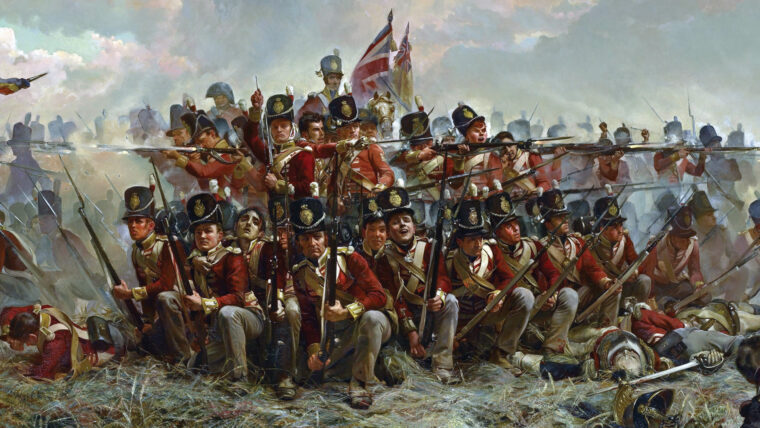
Napoleonic Wars
Political unrest in France and public disenchantment with King Louis XVIII prompted exiled emperor Napoleon Bonaparte to return to his country from the island of Elba in the spring of 1815. Read more
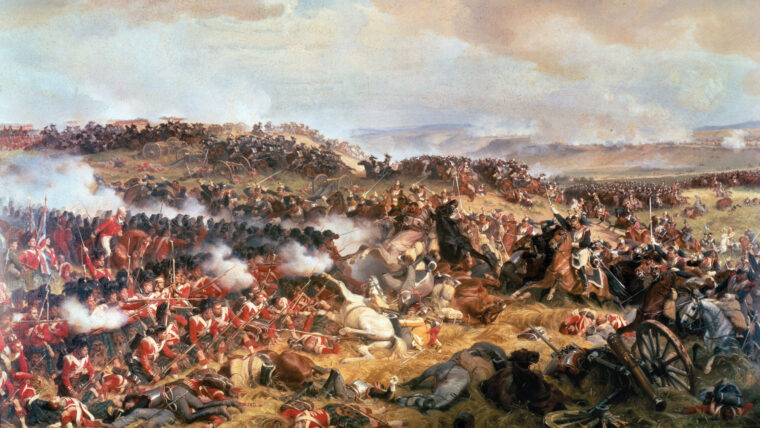
Napoleonic Wars
Field Marshal Arthur Wellesley, Duke of Wellington, was in Vienna when the news arrived in early March 1815 that Napoleon had escaped from exile on Elba and returned to France. Read more